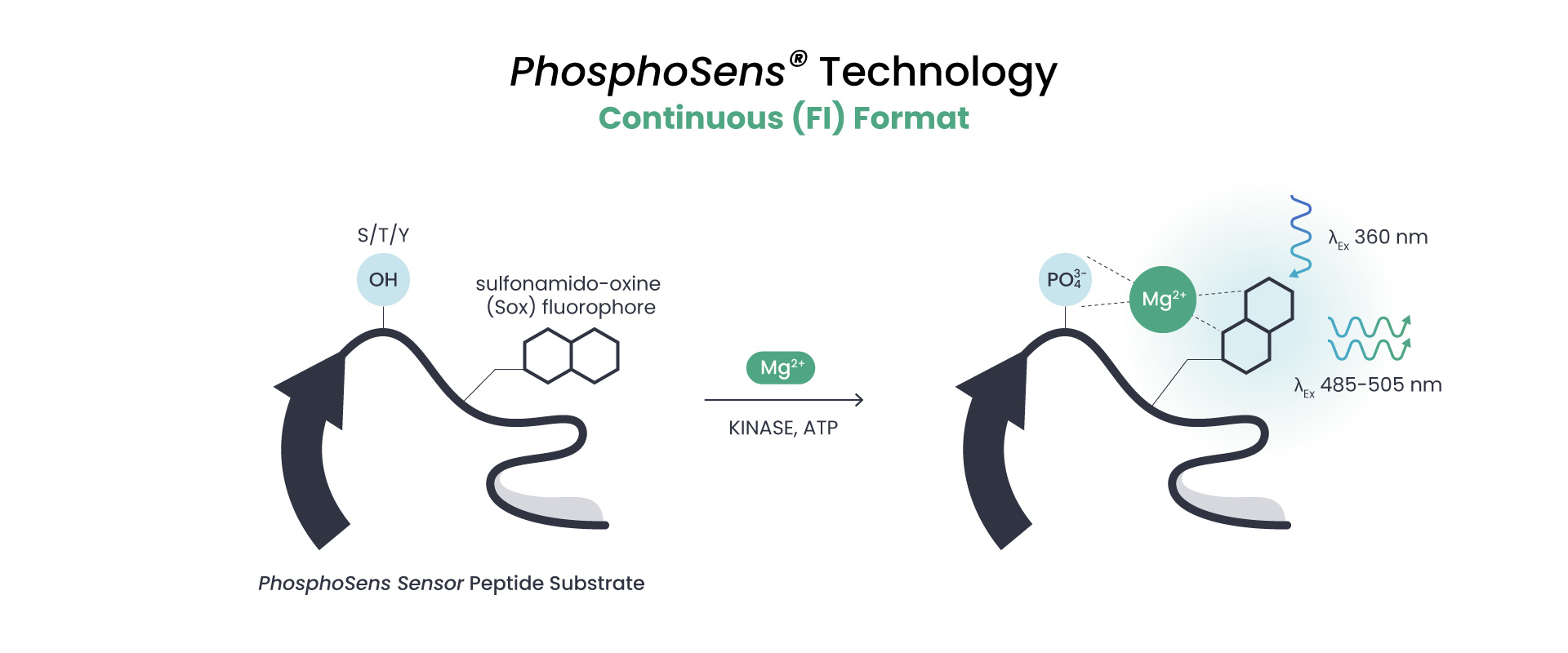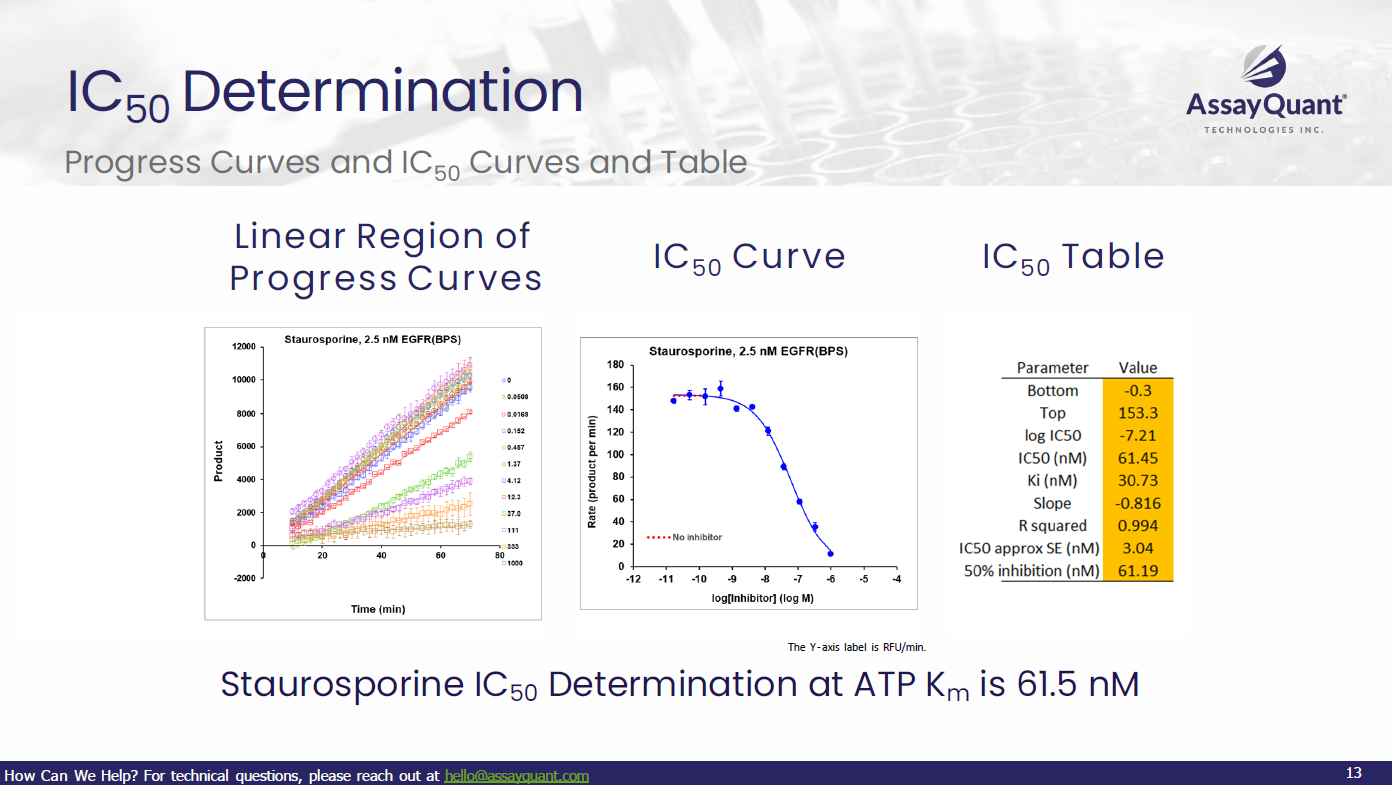Product Information
The recommended PhosphoSens Substrate to assay EGFR activity in the PhosphoSens-Kinetic format is AQT0734
Optimized for EGFR: Study enzyme activity, generate kinetic data, discover inhibitors, characterize mechanisms of action (MOA), and more.
.jpg)
Interested in placing a custom order?
At AssayQuant, we understand that each project is unique. That's why we offer custom orders tailored to your specific needs! Whether you're looking for a unique assay configuration or specialized product specifications, we are here to help.
Contact Us to discuss how we can meet your requirements.
SUBMIT CUSTOM INQUIRYProduct Configurations
EGFR PhosphoSens-Kinetic Discovery Kit
Recommended Product: PhosphoSens-Kinetic Kinase Discovery Kit AQT0734
- Designed for streamlined technology evaluation, PhosphoSens Discovery Kits enable 200 assays. Each kit includes substrate and all essential reaction reagents (ATP, DTT, EGTA, Enzyme Reaction Buffer and Enzyme Dilution Buffer), optimized for your convenience. Enzyme not included.
EGFR PhosphoSens-Kinetic Kinase Substrate
Recommended Product: PhosphoSens Kinase Substrate AQT0734
- Flexible, scalable, and cost-effective! Available by the milligram, with each milligram enabling an average of 2,500 assays, PhosphoSens Substrates are ideal for high-throughput needs and custom workflows.
PhosphoSens-Kinetic Kinase Substrate System AQT0734
Recommended Product: PhosphoSens-Kinetic Kinase Substrate System AQT0734
- Comprehensive and adaptable! These systems pair bulk substrate with sufficient supporting reagents (ATP, DTT, EGTA, Enzyme Reaction Buffer and Enzyme Dilution Buffer) to perform the full number of assays for each milligram of substrate purchased—giving you everything you need for seamless assay execution.
Upon checking out, you will be redirected to our Shopify Site and given instructions for logging in. Purchases via Shopify are available via credit card only.
Planning to purchase via PO?
CONTACT OUR SALES TEAMHow It Works
PhosphoSens continuous assays utilize a simple add-and-read protocol, providing the capability for real-time, kinetic measurements, with a straight-forward, fluorescence intensity (FI) measurement.

PhosphoSens-Kinetic Kinase Inhibitor IC50 Determination
This protocol outlines assay conditions when working in a low‐volume 384‐well plate with 20 µL final well volume and 10 µM Sensor peptide at 1 mM ATP. It assumes that an optimal concentration of kinase and DMSO in the reaction has been previously determined or otherwise chosen. A 12-point compound titration (including a “0” compound concentration) should be run in duplicate using a 3fold dilution scheme for each compound with a separate blank at each compound concentration. Final assay concentrations will be the same as above except for the additional of 2% DMSO final with or without compound.
AQT0734 - EGFR Assay Validation Report
Each validation report provides experimental conditions and data showing:
